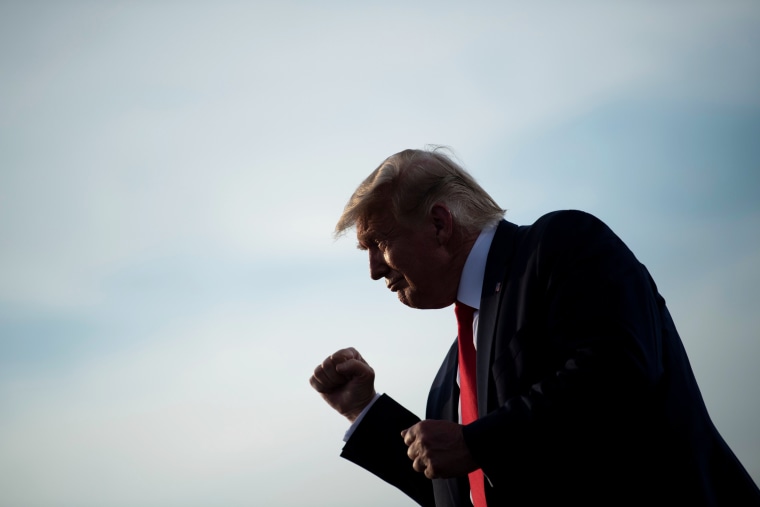The Supreme Court tossed out two lawsuits Monday claiming that Donald Trump's business dealings as president violated the Constitution's ban on receiving financial benefits from states or foreign officials.
The cases raised a novel question about a president's ability to receive income from businesses patronized by government officials. But once Trump left office, it was assumed that the cases would be dismissed as moot because the constitutional provision would no longer apply to him — leaving unanswered the legal questions they raised.
The issue arose shortly after Trump took office. The attorneys general of Maryland and Washington, D.C., challenged his receipt of profits from Trump International Hotel in Washington, a few blocks from the White House. And a nonprofit group, Citizens for Responsibility and Ethics in Washington, raised similar concerns about Trump International Hotel in New York.
Trump's lawyers fought the lawsuits aggressively, but lower courts declined to throw them out, so Trump took his appeals to the Supreme Court. Both lawsuits involved the Constitution's emoluments clauses, which forbid the president from receiving "any present, emolument, office or title of any kind whatever from any king, prince, or foreign state" or any state in the U.S.
Maryland and Washington contended that Trump improperly benefited financially whenever foreign or state governments patronized his hotel on Pennsylvania Avenue NW. Their lawsuits said government officials wanted to curry favor with him, so they patronized his hotel to the disadvantage of Washington's convention center and Maryland's National Harbor development, both of which earn local tax revenue and help area businesses.
A federal appeals court sided with the New York groups making a similar emoluments claim.
"The president's establishments offer government patrons something that the plaintiffs cannot: the opportunity, by enriching the president, to obtain favorable governmental treatment from the president and the executive branch," it said.
After the presidential election, the Justice Department urged the Supreme Court to dismiss the cases and wipe out lower court rulings that found a violation of the emoluments clauses. Allowing them to stand would leave "an erroneous decision on the books that this Court has not had a meaningful opportunity to review," government lawyers said.
In a brief order, the Supreme Court dismissed the cases and ordered the lower courts to vacate their rulings, wiping the earlier decisions off the books.

